Worksite sizzling in the sun? Take cover.
Seems counterintuitive, doesn’t it?
After all, we worship the sun. “Good Day Sunshine.” “Here Comes the Sun.” “Sunshine of Your Love.” When the temps go up on a cloudless day and the rays stream in from 91.75 million miles away, shed the clothes, roll out the blanket, crank up Spotify and work on the tan.
Wrong.
You want to beat the heat, not succumb to it. We’re talking about hot weather safety. You want to cover up with UPF protective clothing and SPF sunscreen. You don’t want to bake in a toaster oven. Respect that ball of hydrogen and helium the size of 1.3 million Earths. Ninety percent of skin cancer diagnoses are directly attributed to long-term overexposure to the sun’s ultraviolet radiation, specifically sunburn.
PLAYING VS. WORKING IN THE SUN
Beach-goers lay out for a few hours, feel the burn, and head inside. Not so if you’re working construction, logging, landscaping, agriculture, delivering mail or packages, riding sanitation trucks all day, out in oil and gas fields, working on the railroad or utility lines, fishing for a living or other jobs that have you outdoors all day.
In these jobs, ditching clothes may seem like the cool thing to do, but it’s a myth. If the sun is out and cooking, you won’t cool off for long. Your core temperatures will start heating up and your skin will burn. More than 65,000 people rush to emergency rooms for heat-related distress every year and about 700 die from heat, according to the Centers for Disease Control and Prevention (CDC). Compared to a worker level, according to the Bureau of Labor Statistics (BLS), there were 1,940 heat related injuries in 2020 and 36 fatalities in 2021. Though, the Occupational Safety and Health Administration (OSHA) acknowledges those numbers are vastly underestimated.
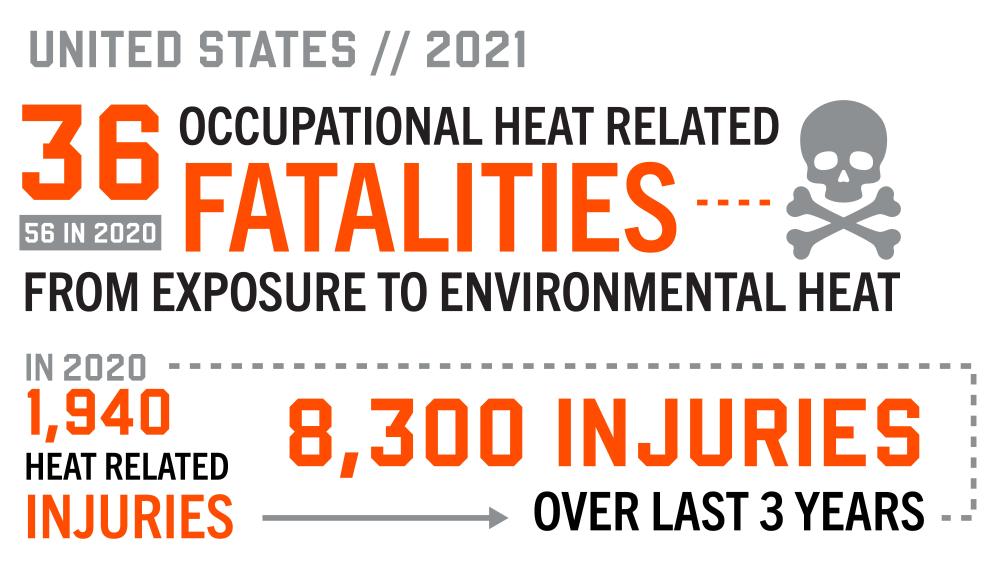
WAYS TO STAY COOL IN THE HEAT
You need cooling clothing to protect your skin from blistering and burning and to control your core body temperature—especially during extremely hot weather and high humidity, which prevents sweat from evaporating. In worst-case heat stroke scenarios, body temperature may rise to 106⁰F or higher within 10 to 15 minutes.
And of course you need to hydrate, hydrate, hydrate. Don’t wait until you’re thirsty to drink more. Muscle cramping may be an early sign of heat-related illness. Drink more than usual—about 6 to 8 ounces of water every 15 to 20 minutes. This means having plenty of agua easily accessible.
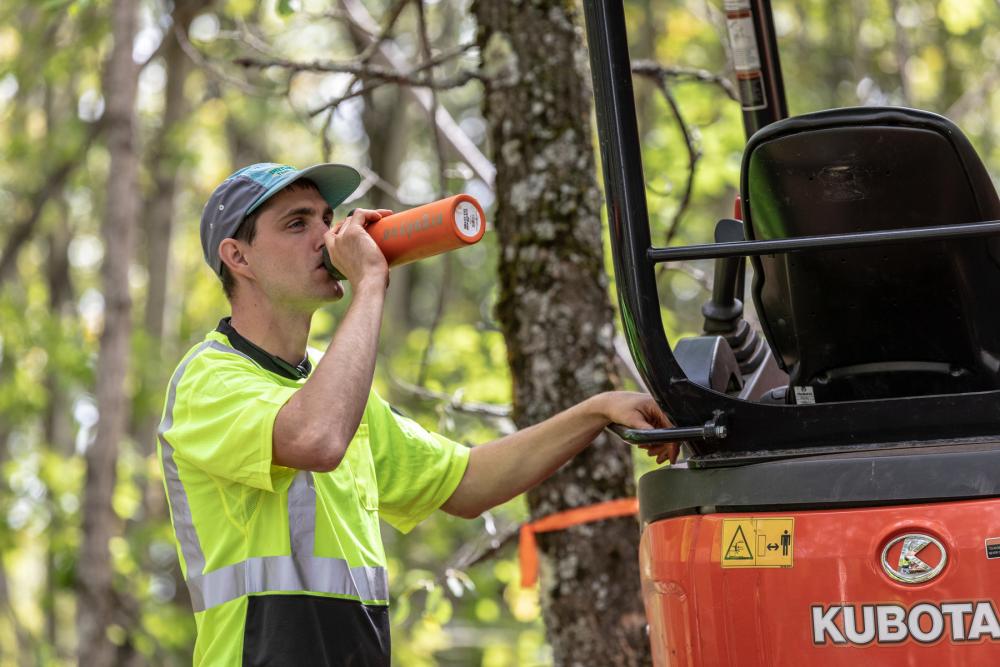
Evaporative cooling clothing, accessible water, fans, and a variety of sunscreen lotions, sprays and sticks are your hot weather safety arsenal for beating back the heat and staying comfortable and productive in outdoor jobs—and certain indoor high-heat environments such as warehouses, foundries, and restaurant kitchens.
SUN PROTECTION ACRONYMS 101
Before Ergodyne delves into different sun protective clothing and sunscreens, knowing these acronyms will help you select the right gear:
- UV: The sun’s ultraviolet radiation. The sun damage risk on worksites is so high OSHA has labeled UV as a carcinogen. UV rays are most intense between 10 a.m. and 4 p.m.
- UPF: Sun protection clothing will carry an ultraviolet protection factor (UPF) to create a physical and chemical barrier (often both) for blocking UV rays. To earn the Skin Cancer Foundation’s Seal of Recommendation, clothing must be rated at least UPF 30. Many stay cool clothing items dial up that rating to UPF 50.
- SPF: Sun Protective Factor measures the protectiveness of sunscreens. SPF 50 sunscreen lotions, sprays and sticks protect against both UVA and UVB rays and are recommended to be reapplied every two hours.
- UVA: Ultraviolet A sun rays penetrate deep into the skin and cause long-term skin damage, aging and wrinkles.
- UVB: Ultraviolet B rays cause sunburn and can turn you as red as a lobster.
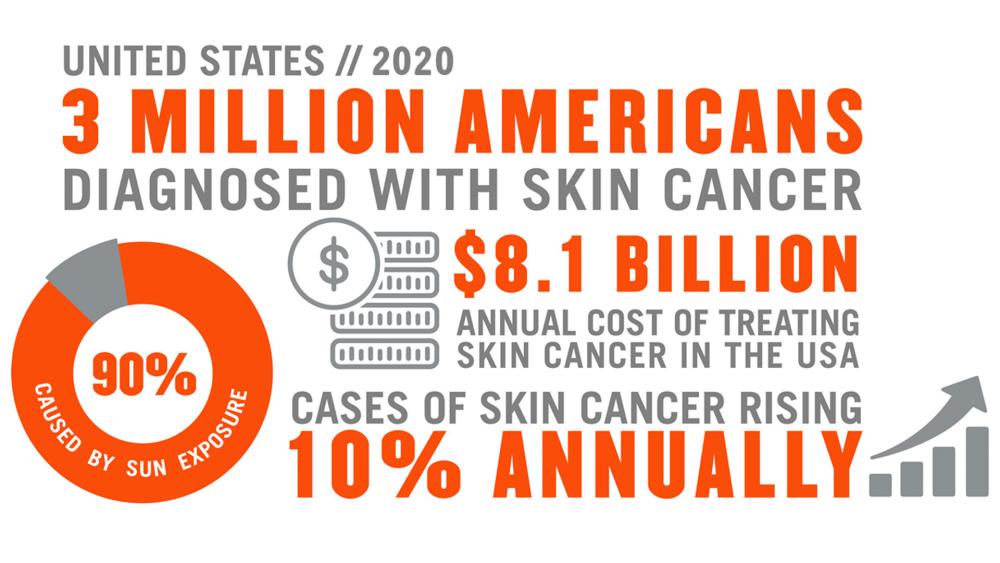
WEARING BLACK IN THE SUN WON’T MAKE YOU OVERHEAT
Let’s clear up one bit of confusion about covering up before giving you scores of ways to stay cool in the heat. Remember Lawrence of Arabia’s Bedouin warriors swooping down the sands, raging visions of black? Maybe they know something after thousands of years in the desert heat. Maybe black clothing prevents body heat from reflecting back on the human—keeping the body cooler than Lawrence of Arabia’s white robes. But here’s an important consideration: wind and air currents.
Black clothes heat up the space between the cloth and the human to promote airflow. You need air space and desert winds between the fabric and the skin for that cooling airflow. Let’s not forget the traditional garment of Bedouin women and men consisted of a long gown with large, winged-like sleeves. The billowy robe was usually girded with a belt.
Not your ideal stay cool clothing for roofing jobs, riding lawn mowers, climbing utility poles or fighting wildland fires.
So what can you easily get your hands on to suck it up and keep on going when waves of heat and humidity roll through worksites for days on end? When sweat is pouring, the throat dries up, the cranium gets woozy, the skin burns and no one is singing, “Here Comes the Sun”?
YOUR ARSENAL OF STAY COOL CLOTHING
What’s available? Take your choice: UPF long sleeve shirts, UPF cooling sleeves, cooling vests, FR vests, hi-vis vests, cooling hard hat accessories, cooling hats, headbands and gaiters, wrist sweatbands, cooling towels, hydration backpacks, coolers and bottles and jobsite fans will keep you cool, calm and collected when it feels like you’re working in an inferno. Heat-related illnesses can play mind games—causing confusion, headaches, dizziness and strange at-risk behaviors—so you definitely want to keep calm and cover up with hot weather safety clothing.
Key features to look for with cooling products:
- UPF Protection: UPF 50 Sun Protection against those harmful UV rays streaming from the sun 91 million miles away
- All-Day Comfort: Soft, stretchable and seam-free knit fabric for a comfortable fit and easy mobility that won’t get in the way of a job well done
- Breathable: Fabrics that breathe and are lightweight
- Moisture-Wicking: Moisture-wicking to absorb sweat and wick moisture away to create a cooling effect
- Cooling Activation: Some cooling products give you instant cooling relief by soaking or running the item in water until saturated, wring out excess water and wave to activate with airflow. The evaporative cooling process begins instantly and lasts for hours.
SUNSCREEN FOR WORKING OUTSIDE
Ergodyne has covered UV protection clothing, cooling options and hydration options; but we’re absolutely not out of danger outdoors against that gigantic fiery ball of red, yellow or orange without sunscreen options.
Go for a high protective rating, SPF 50, for broad-spectrum UVA/UVB protection against sunburn. Use an FDA-approved water-resistant and sweat-resistant sport formula sunscreen that’s hypoallergenic and has a neutral scent with no odor. You can choose from sunscreen lotions in squeeze bottles, a solid stick that comes in a container for easy application, and a spray for fast and easy application. Remember: Slather. Work. Repeat.
When the heat is on—indoors or out—and the sun seems as close as a low-flying drone, not 91 million miles away, take cover. It’s typical to encounter these hot, nasty conditions for months on end in most parts of the country, and familiarity can make us complacent—taking the dangers for granted. Don’t. Remember all the ways to stay cool in the heat and practice hot weather safety when the temps ratchet up. You have many a cooling option to dial down the danger.
Visit mscdirect.com to explore Ergodyne Heat Stress Solutions.
Previously Featured on Ergodyne's blog.


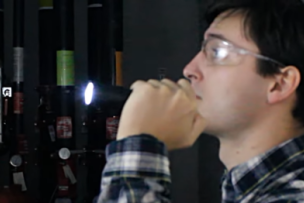
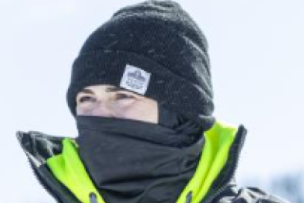
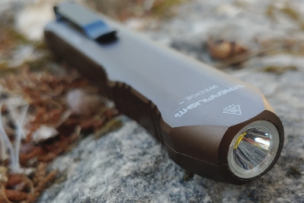
Talk to Us!
Leave a reply
Your email address will not be published. Required fields are marked *